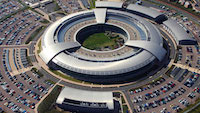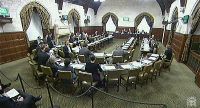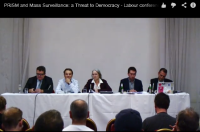I was invited to attend Tom Watson’s speech building on much of his campaigning work and presented in the New Statesman as reclaiming civil liberty for the Left, although sub titled by him as “David Cameron is governing from the shadows”. In this article I review the speech; I try to report on it and to comment by adding some personal views and insights, in some cases new ideas provoked by Tom’s speech. It was quite a long speech and it takes a diverse route to get to its polemical heart which is that Democracy is the choice by an informed citizenry of a government, subject to the rule of law and that the Freedom of Information Act is one of the pillars of this contract and should not be diminished or repealed. …
On an informed citizenry






